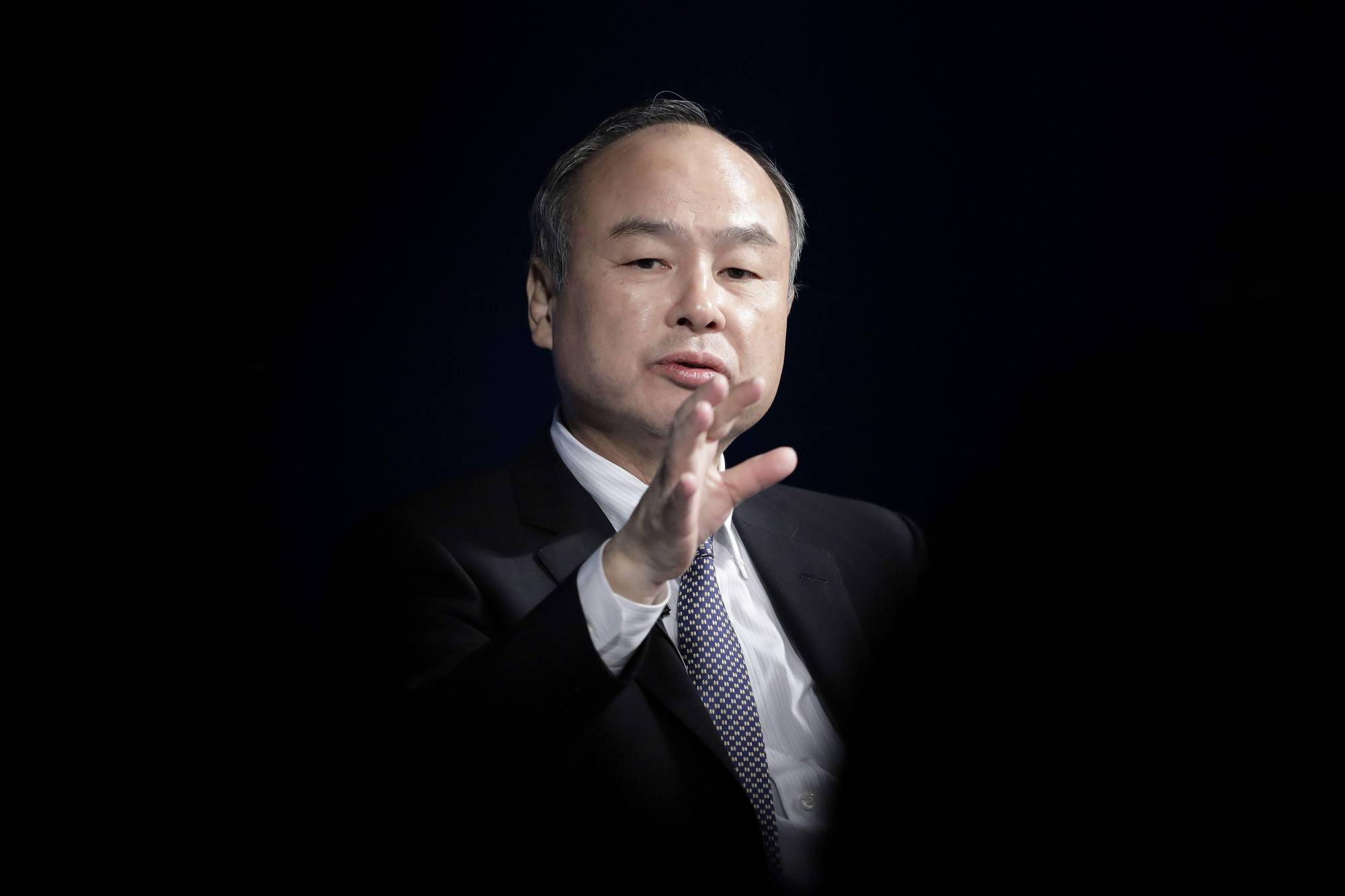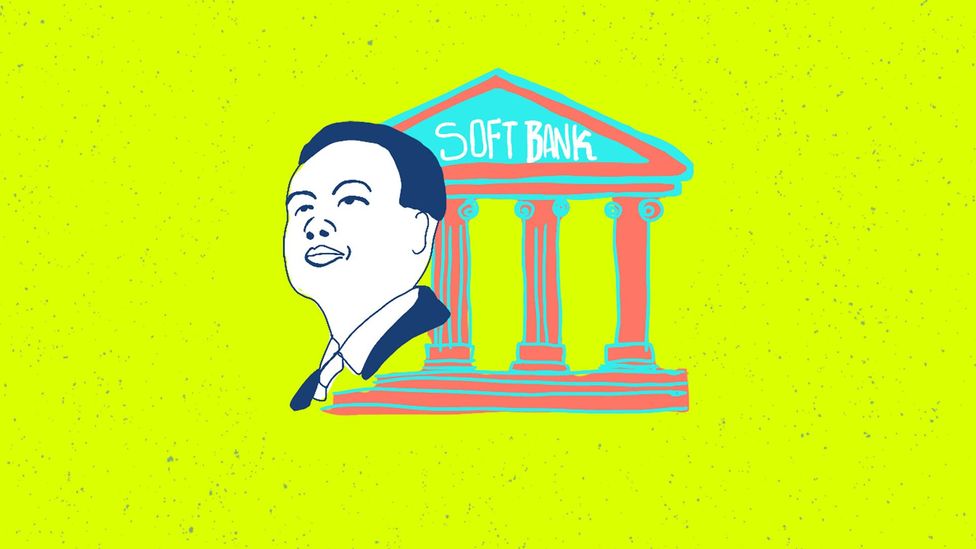Welcome To The Masa World: Is Softbank Running An Organized Ponzi Scheme In India In The Name Of Startup Funding?
SoftBank's massive financial injections can alter market dynamics by providing a considerable competitive advantage to some businesses. This can impact healthy competition and create an uneven playing field for companies that lack such resources.

SoftBank created the Vision Fund in 2017 with a $100 billion funding commitment. The Vision Fund is a gigantic investment fund focusing on global tech firms, specifically startups. Because of the country’s fast-increasing technological ecosystem and the potential for significant returns on investments, SoftBank picked India as one of its main regions for investment.
The presence of SoftBank in Indian companies has been both encouraging and problematic. SoftBank invested heavily in multiple Indian companies, giving them considerable resources to build and multiply. However, specific critiques and concerns have been raised about SoftBank’s investments in the Indian startup environment. Here are some reasons SoftBank’s engagement may be seen negatively and can be displayed as it is running a Ponzi scheme in India in the name of startup funding.

Masayoshi Son is a controversial leader- The startups become the victims of his leadership.
Son’s early investment in Chinese e-commerce behemoth Alibaba established Masayoshi as a technological visionary over the course of two decades. In truth, his strategy often revolves around endless rounds of funding in corporations with suspicious business plans. SoftBank’s massive financial injections can alter market dynamics by providing a considerable competitive advantage to some businesses. This can impact healthy competition and create an uneven playing field for companies that lack such resources.
Tactics 1: Softbanks pump funds into the company and indirectly motivate them to burn cash alarmingly.
Softbank backs all the following startups characterised by burning cash.
Flipkart, India’s largest e-commerce business, is rapidly burning its financial reserves. Flipkart’s cash burn in the fiscal year ended September 2022 was US$3.7 billion, the highest for any Indian firm, not alone in the e-commerce market.
Ola, the trailblazing ride-hailing colossus that changed the urban transportation, is one of the most-watched startups in India. However, a fascinating aspect below its great performance is Ola’s high cash burn, which has piqued the interest of industry gurus and investors alike. In FY21, Ola’s losses were Rs 174.5 billion, while revenue fell 63%. Ola’s cash burn in the fiscal year ended March 2023 was a stunning $1.3 billion.
Zomato is another startup that has adjusted the way Indians live their lives. It solved a long-standing problem with food distribution, even in some of the country’s most distant places. Advertising and marketing expenditures increased from Rs 12.17 billion last year to Rs 12.27 billion this year. Delivery and related expenditures spiked to Rs 25.37 billion from Rs 18.14 billion in the last years. Other miscellaneous costs increased to Rs 21.51 billion from 10.16 billion last year. Finally, Zomato’s overall spending increased 41.4% to Rs 8,775 crore in FY23, compared to Rs 6,205 crore in FY22.
These are examples of just three companies. Majority of the companies that Softbank funded have one thing in common, i.e., alarming cash burn, which could only happen when there is enormous cash. As mentioned above, all these companies established a cult following, but where are the companies today? Well, we all know their financial reports.

Tactics 2: The mafia boss uses the technique of funding in millions to fuel up the valuations.
SoftBank’s investments are famous for pushing up company valuations to levels that some believe are unsustainable or unjustifiable in light of the businesses’ actual financial performance. This may lead to a “bubble” effect, in which businesses may find it challenging to match these high values long-term, perhaps leading to failure.
Also, SoftBank’s investments frequently come with the expectation of quick development and market dominance. While rapid scaling has benefits, it may also lead to businesses focusing on expansion at the expense of developing sustainable business models and solving underlying issues.
SoftBank Group, Japan’s most aggressive VC investor, believes they have come across a psychological condition called chrometophobia, or money fear. These multibillion-dollar technological bets are being pushed on a simple premise: In the age of the coronavirus, cash is immensely dangerous. The mindset that began in Japan with the investment in Paypay was carried over to India when Softbank infused substantially in Paytm, fueling its valuations. And what happened to Paytm IPO is even more devastating for market sentiments.
And if you think this is only one example, learn the following.
We all know that the pitcher(the person who has the idea and wants the funds) makes the first move toward the investor. However, Softbank is so ‘soft’ by nature that it approaches startups for investments. In 2018, it approached Delhivery, the logistics firm. The existing investors at that time were not so okay with the idea of Softbank coming with its big cheques. Unfortunately, the logistics business did not understand SoftBank’s reputation for pushing founders to spend large sums of money, ignore earnings, and dominate the room, and therefore accepted their call. SoftBank made its first investment in Delhivery in October 2018 and then decreased its share following its first IPO in May 2022.
Following the completion of the IPO of Delhivery, the new-age firm has experienced the wrath of dampened market emotions, bad financials, and a lack of investor engagement. Even market professionals were sceptical about the counter. Rich valuations and a crash in startup stocks have exacerbated the situation. According to analysts, Delhivery’s IPO faced the brunt of the market’s bad feelings amid rising temperatures, which its predecessor, Paytm, did.
Tactic 3: Make the company take access to foreign capital for granted and then slash the sword on their accessibility.
Startups that get substantial investments from SoftBank may become unduly reliant on outside finance and fail to focus sufficiently on becoming self-sustaining or profitable. Companies may find it challenging to get more capital if the financial environment changes. This can be seen from the onset of the funding freeze. Masayoshi Son stated in May 2022 that the firm would likely invest just half or a quarter of what it invested in 2021 this year. 2021 was a record-breaking year for technological investments because of the unprecedented fundraising frenzy in private and public markets.
Son’s remark validates what the startup ecosystem in India and globally has been anticipating for some time: a slowdown in large-ticket fundraising due to macroeconomics and the continuing Ukraine-Russia situation.
Other propositions prove why Masayoshi Son’s investment strategy can be a demon for the Indian Startup system!
Lack of Due Diligence: Some opponents have stated that SoftBank’s quick investments in various startups may result in a lack of rigorous due diligence. This leads to investments in businesses with poor business models or governance difficulties. Also, Son said in that remark that from 2022 onwards, he and the company would be more cautious in the due diligence of companies as well as their founders about whether they are competent enough to get investments from them or not.
Market Distortion: Potential Bubble Formation: SoftBank’s approach might contribute to a startup bubble in which businesses with unsustainable business plans or weak fundamentals obtain excessive capital, leading to a market correction later.
Impact on Innovation: Some experts are concerned that SoftBank’s approach may lead to companies concentrating more on fundraising and financial engineering than actual innovation and value creation.
After reading this much, you may feel there is one problem with the Indian startup ecosystem only; otherwise, how can the strategy of such a wit investor fail? Well, you are not wrong; there is a plethora of loopholes in the Indian startup ecosystem, from void business models to a lack of accountable materialistic and personnel resources in financial auditing. But there is something that says that the problem is not only in Indian startup waves; instead, there is something problematic in Softbank’s strategy as well, in foreign lands, with foreign companies.

Example: WeWork cannot identify and resist itself and falls prey to the mafia boss Softbank.
SoftBank funding increased WeWork’s valuation from about $17 billion to $47 billion in 2022, laying the path for the company’s unsuccessful IPO. When business school academics write their WeWork case studies in the future, one of the essential practical takeaways may be that WeWork should have taken significantly less money from SoftBank’s Masayoshi Son or have declined to take funds from the ‘so-called soft and open-hearted boss’ Softbank.
The sorry state of WeWork in 2022 has portrayed SoftBank as a mafia boss. SoftBank put $10.65 billion into a firm that planned to go public at a valuation higher than $47 billion. Anyone who has seen a mafia film understands that you better deliver if you receive money from the boss.
SoftBank believed WeWork might be worth $100 billion, and leaked audio from 2018 demonstrates how it exaggerated the excitement about the company. In May 2018, one of SoftBank’s most senior executives, Mr Rajeev Misra, stepped onstage at a conference in London and said that WeWork was gathering capital at a $35 billion valuation – and that the company may one day be worth $100 billion. He also discussed how WeWork would transition from renting office space to a more active role in building and design and how income would be generated by cross-selling services to shared office members, although he had nothing concrete about all these to-be successes.
That should have served as a signal to investment banks and WeWork’s board that other investors might not have agreed on the company’s valuation of $47 billion. Instead, J.P. Morgan, Goldman Sachs, and Morgan Stanley indicated they might find investors prepared to pay $60 billion to $100 billion for WeWork. And, due to its ambitious expansion and unpaid lease commitments, WeWork proceeded with an ill-advised IPO, which has taken the business weeks from insolvency. And hence, the company suffered by taking money from the demon Softbank.
This is again just one example outside the circle of the Indian startup ecosystem, where Softbank’s approach in pumping valuations had caused the company to fall on its knees.
Though many difficulties at portfolio firms precede the pandemic, the subsequent economic catastrophe has revealed what opponents have long considered an exceptionally hazardous approach of pouring large sums into unproven enterprises in the hope of dominating large new markets.
When there’s a lot of money in the system, people don’t understand where to put it. People see space for innovation in technology and life sciences, and that’s where the money flows, so you get these inflated valuations and IPOs in the tech sector. In general, it’s grown so frothy that instead of looking at trailing sales or even next year’s predictions for valuation, sell-side analysts “are now doing three- or four-year forward revenue multiples to justify the value.”
When high-profile startups like WeWork fail, the founders are frequently held accountable. However, there is plenty of blame to go around for these venture-backed enterprises. SoftBank and other investors help entrepreneurs raise capital, which they subsequently sell to the public through IPOs.
Underwriters may also be failing to do adequate due diligence. The boards of venture-backed enterprises should be required to guarantee that company filings and predictions are accurate and credible.
Typically, all the individuals at the company’s legal firms and the underwriters would conduct extensive due diligence when preparing the registration for the IPO. The persons in authority appear to have been entirely unaware of the situation. Another case of skilled individuals failing to assess a new firm and instead thinking the founders’ appealing story is possible. And this is where failure begins.

Is Son really wrong, or do his ideas and strategies need a thoughtful change as per the current business ecosystem?
The Japanese conglomerate Son created in 1981 has frequently reshaped entire industries under his leadership with mammoth purchases of firms like Sprint and foresighted investments in start-ups like Alibaba. His $93 billion Vision Fund, which he plans to utilise to influence the future for millennia to come, is the centrepiece of his strategy. If the timeframe looks strange, it’s because Son is a bit quirky. He frequently references Yoda, is passionately preparing for the singularity, and has been known to place significant wagers on businesses based on what he previously referred to as his “sense of smell.”
Son is setting the groundwork for a business and a legacy that will last for centuries. At a shareholder meeting, he said that he would like to become the company that makes the most contribution to human evolution—the company that has the greatest impact on humanity.
To achieve that lofty objective, Son keeps pursuing audacious, bordering-on-aggressive business partnerships meant to keep SoftBank at the forefront of any trend he feels will profoundly change the course of human history. Previously, this meant internet and Telecommunications firms. Big data, biotechnology, robotics, agribusiness, ride-hailing, and autonomous vehicles are examples of what it means today. Son likes to claim that he is putting himself in a position for the day when “all sectors of society and industry will be redefined” by highly intelligent machines.
It seems that Son wanted to reshape the world so that all establishments will be tech-savvy and AI will accomplish every task. Though it may not be wrong that AI is taking dominance in every sector, that doesn’t mean it will hail this smoothly. Specifically, in an agri economy like India, which has many bigger problems (population, majority of low to middle-income households), things will take time to give fruit. Therefore, these kinds of aggressive investment strategies may be horrible for the Indian startup ecosystem.

Conclusion.
The Vision Fund seems to be an utter disaster. It has been an example of how too much money can have terrible results when being thrown about without completing fair due diligence. Over the last three years, Son has converted SoftBank into a tech investor, raising Vision Vehicle, the world’s largest late-stage investment vehicle. To be true, some investments are performing well, but examples are scarce as the pandemic exacerbates issues.





